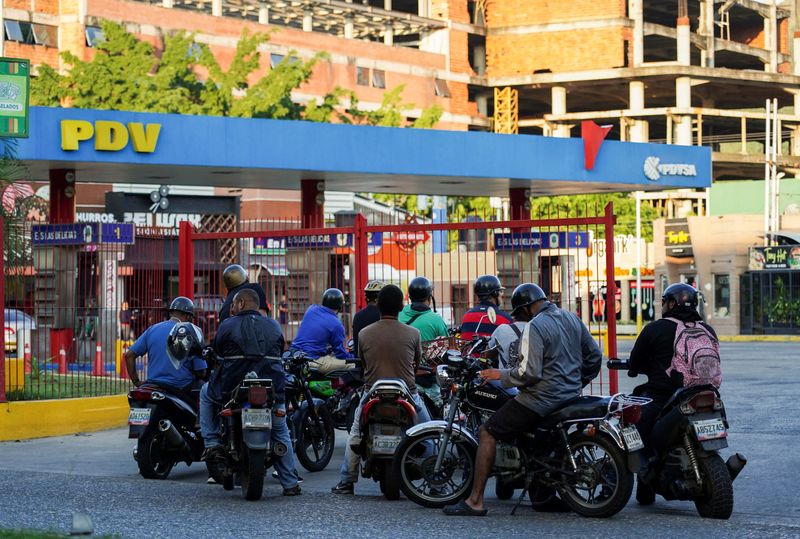Venezuela queues for gasoline
2022.12.09 13:55
[ad_1]

Venezuela queues for gasoline
Budrigannews.com – Due to repeated outages at the refineries of the state oil company PDVSA and a lack of imports of diesel and gasoline, there are once again long lines for motorists at Venezuela’s refueling stations.
Drivers had to wait for days to get gas in 2020 and again in 2021, and farmers stopped working because there wasn’t enough diesel. This year, imports of Iranian crude had increased refinery output, easing the shortages.
However, workers claim that problems with deep-conversion units, which are necessary for the production of motor fuel, are causing Venezuela’s refining network to once again operate at a fraction of its capacity, resulting in a new round of shortages.
When I got there in the afternoon, there were more than 100 cars in line ahead of me. The station ran out of gas just after midnight, according to Ramon Blanco, a 32-year-old man who filled up the following day at another station. I hope we don’t return to that awful time when we had to wait for days in line.
The fuel shortage, which has not yet reached the capital city of Caracas, has primarily affected the central region of Venezuela. However, lines have also resurfaced in Falcon state, where PDVSA’s largest oil refineries are located.
Every morning, hundreds of motorcycle drivers, a common mode of transportation in the country, circle many stations in search of a filling opportunity. When supplies are available, some motorists expressed concern about the dollar-denominated gasoline prices.
A request for clarification from PDVSA was not met. It announced on Twitter on Thursday that operations would be extended at several stations in the central region.
More Oil companies do nothing to save climate-US
Since last week, Venezuela’s largest refinery, the 645,000-barrel-per-day Amuay in Falcon state, has been without its fluid catalytic cracker. Since July, the plant has experienced three outages caused by power outages and unplanned maintenance. This year, the unit has not been operational for a total of 23 days.
PDVSA is currently attempting to restart the adjacent Cardon refinery’s cracking unit, which has been offline for the entire year, and the naphtha reformer, which has been out of service three times this year, as a result of the situation in Amuay, which is part of the country’s Paraguana refining complex.
The smallest refinery in the country, PDVSA’s 146,000 bpd El Palito, has been repaired and attempted to reopen by employees of Iran’s state-owned Naftiran Intertrade Co (NICO).
This year, Iran supplied El Palito and other Venezuelan refineries with millions of barrels of oil, and PDVSA changed the crude diet of its facilities to keep them running despite a lack of lighter grades for making motor fuel.
After at least three power outages and two minor fires this year, unstable electricity has hampered Paraguana’s twin refineries in particular. Operations at El Palito have been disrupted in recent months by a fire and a power outage.
Workers at the 187,000 bpd Puerto la Cruz refinery told Reuters that two crude distillation units and a hydro-processing plant are operating on the country’s eastern coast.
A worker from Amuay stated, “We are trying our best because we are under pressure to restart some plants for producing gasoline.” We are aware of the dire state of affairs there.”








